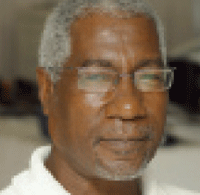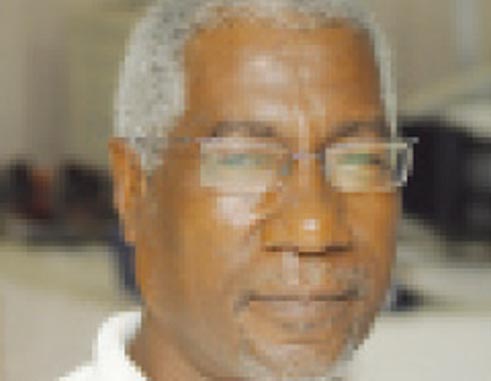
‘Dual Citizenship’ or ‘Citizenship by Investment’. Call it what you want, but in the end, it’s all about passports for sale. Many would probably have thought that citizenship was something exclusive to persons born in any country. But that’s never been so – apparently – as most (if not all) countries have ways and means of selling or conferring citizenship to non-nationals.
The USA, Canada and the UK, for example, are going head over heels to outdo each other to attract rich Chinese who can afford to buy expensive American, Canadian and British citizenship.
But the North Americans and Europeans are also in competition with small countries the world over that try to do the same with their own similar but smaller schemes.
To attract buyers, poor countries with passports for sale lower the bar to compete with each other, only to end up being accused by the rich countries of making way for criminals and persons fleeing justice or otherwise up to no good.
The sole reason countries sell passports is to earn money.
But the reasons individuals want passports other than their own vary widely, ranging from honestly wanting to invest to the convenience of being able to flee justice or political suppression.
Now, there’s also the question emerging across the region of politicians being dual citizens.
Some countries ban government ministers or parliamentarians from holding dual citizenship, but in most cases, this is not implemented.
Not that the politicians concerned do not care, but they simply haven’t paid any mind to this matter.
The whole issue came to a head following the December 21, 2018, No Confidence Motion won by the Guyana opposition after a government parliamentarian voted in favour, resulting in the opposition motion being carried by a one-seat majority.
There’s been much legal to-and-fro since then, but the dual citizenship issue came into full play as the government MP who voted with the opposition was a dual citizen.
Following his ‘conscience vote’, the renegade government MP, who also has Canadian citizenship, had to flee Guyana — with help from the Canadian High Commission.
But while the Guyana High Court ruled that the Motion was carried legally, the Appeals Court upheld a government claim that it was not legal, citing in part the fact that the MP whose vote carried the motion illegally held dual citizenship.
The Guyana opposition has now challenged the Appeals Court decision and taken the matter to the Caribbean Court of Justice (CCJ).
What’s at stake in Guyana is the very future of the government, as the opposition No Confidence Motion victory, however slender the margin would normally mean the government resigns and fresh general elections are called.
Governments serving with one-seat majorities is another interesting Caribbean political phenomenon, with Prime Minister Dr Ralph Gonsalves having led successive administrations with the smallest of margins.
The last two general elections in Guyana both returned governments with one-seat majorities: first, the People’s Progressive Party (PPP) led by President Donald Ramotar and then the current APNU coalition administration led by President David Granger.
Apart from the uncertainty over how the CCJ will rule, the reality is still that the government and opposition now have equal numbers in the hung Georgetown parliament and that is no source of comfort for President Granger, who is also seriously ill and undertaking cancer treatment.
But the dual citizenship issue has hit the president squarely in the face and earlier this week he requested the resignation of four Cabinet Ministers with dual citizenship.
The issue of government leaders having dual citizenship also came up in the courts in St. Kitts and Nevis recently, where a team of Caribbean lawyers won a case involving former Prime Minister Denzil Douglas, who was being challenged for also having a Dominican passport.
Saint Lucia and several other OECS and CARICOM member-states are in the business of selling passports, some inviting nationals of other countries to ‘Come as a visitor and leave as a citizen.’
In all cases, each country has to constantly pore through its applications list to try to sift out undesirable elements.
But, as seen in Antigua & Barbuda recently — where an Indian billionaire fleeing investigation for corruption had successfully purchased Antiguan citizenship — some do slip through the cracks.
The jury is still out across the region on whether selling passports is good or bad business, but what is beyond doubt is that it’s very big business.
People also generally do not have a problem with others having dual citizenship.
But there’s not been much discussion on whether government ministers or parliamentarians, in general, should have dual citizenship.
The Saint Lucia Constitution indeed outlaws dual citizenship, but this aspect has apparently never been implemented, as members of successive Cabinets of Ministers have held office while also holding passports of other countries.
Saint Lucia, like several countries, has been – more than once — led by someone not born of this soil, but this has never been a problem.
Xenophobia will at times rear its ugly head, as in Guyana when President Janet Jagan’s inauguration (after winning an election) was challenged by the opposition on the basis that she was ‘not born in Guyana’.
But generally, Caribbean people have no problem with where a politician was born.
The issue of dual citizenship, however, was considered sufficiently important that the drafters of most (if not all) of the region’s constitutions at Independence included special provisions to make it unconstitutional for Cabinet ministers and MPs to hold any other passport than that of the nation he or she serves.
So, what is the position with Saint Lucia? Does any Cabinet Minister have dual citizenship? If so, will he, she or they be asked to resign? Can such Ministers still renounce their other citizenship? And what of MPs generally on both sides of the House?
Whose job is it to police our constitution? Are election candidates supposed to declare their dual citizenship before registering? What’s the role of the Electoral and Integrity Commissions in all this?
Questions, questions, questions…
Will we ever get the answers?
Who knows?














thanks for info
thanks for info.